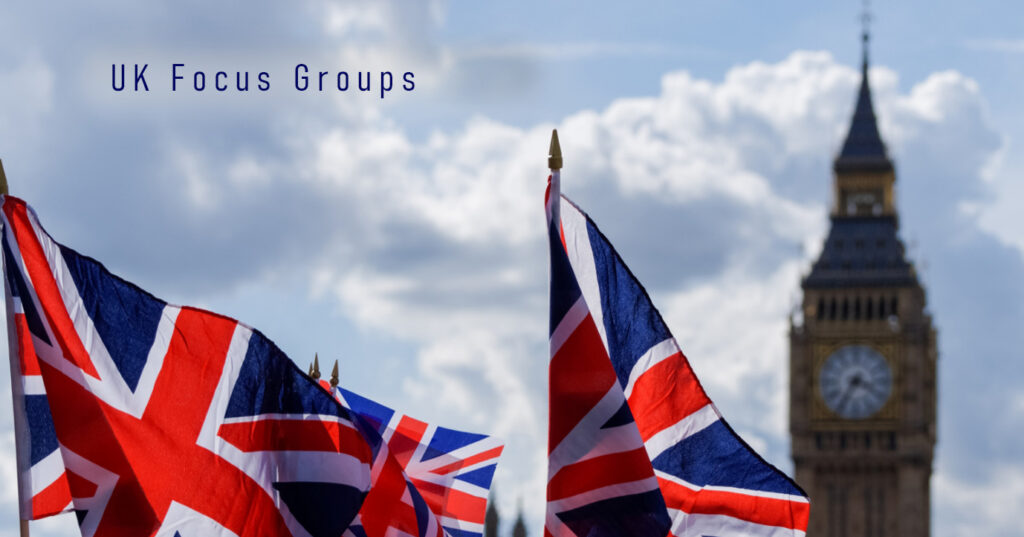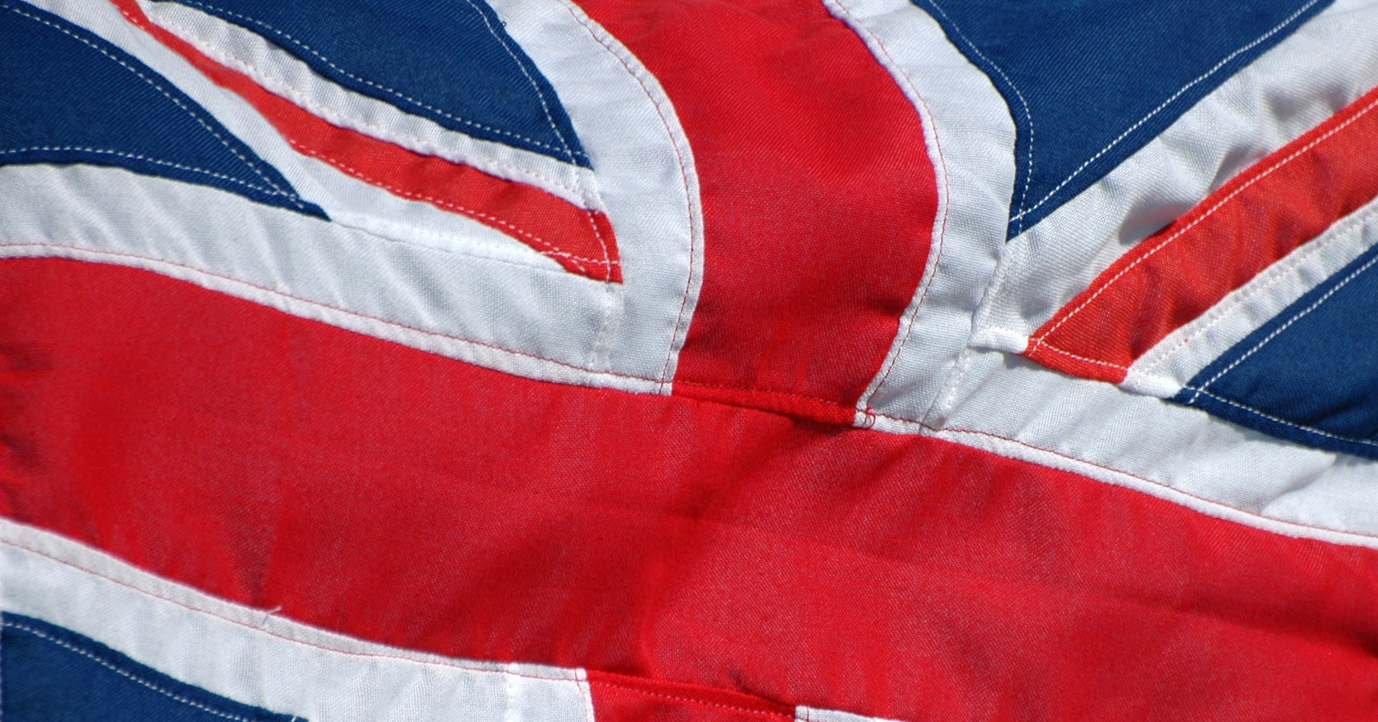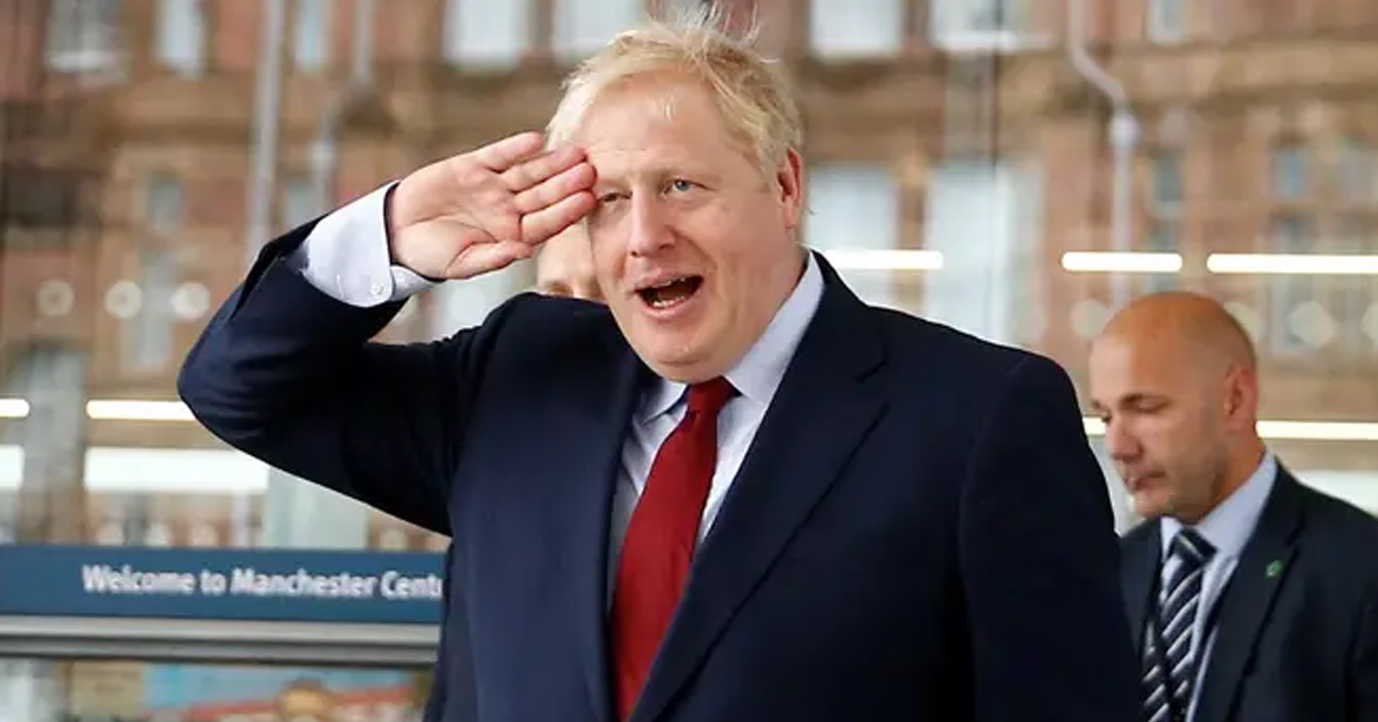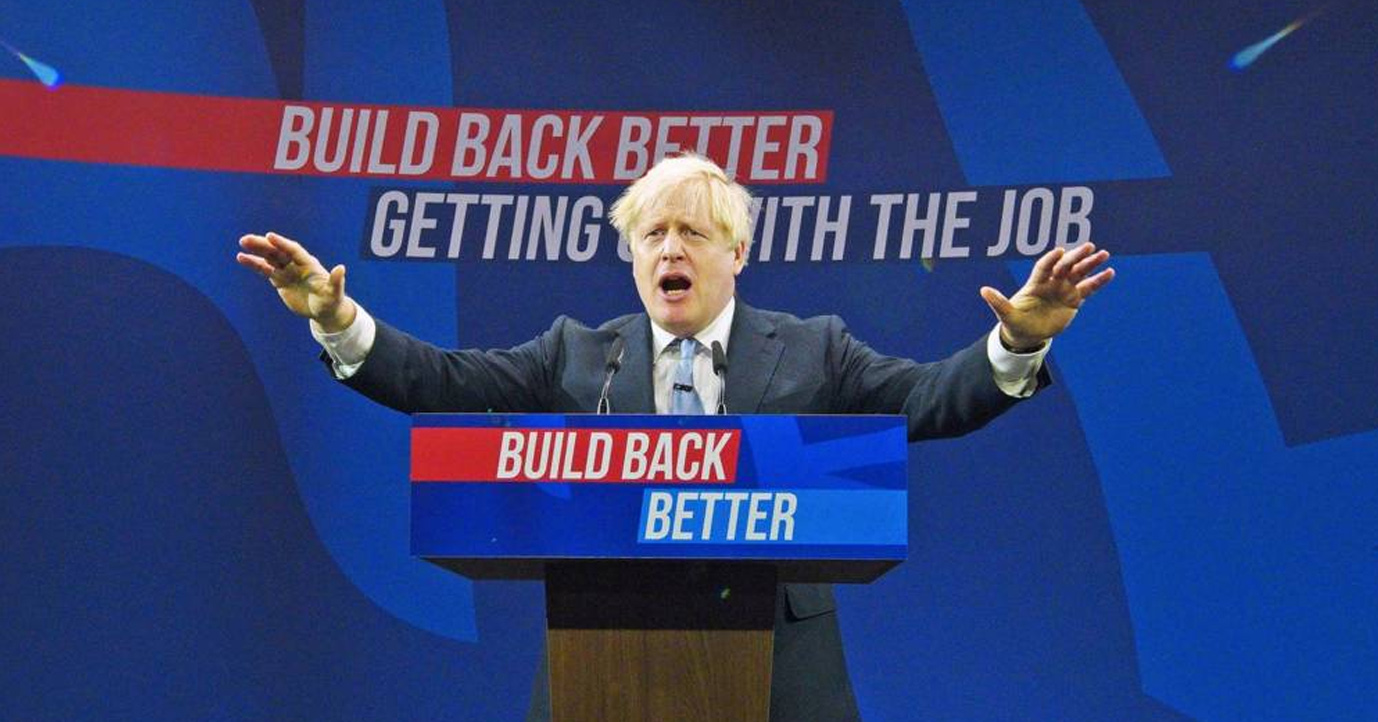
This week’s focus groups with undecided referendum voters took place in Leeds, where people were doing their best to stay on top of events (“I’m not OCD about it but I like to know what’s going on”). Participants had noticed that recent news had been dominated by migration, including the rise in net migration to 333,000.
For some, this was worrying (“it’s scary when you see it written down”). Others thought it was surprisingly… low: “It’s not as high as you imagine. The way the media portrays it you’d think it was millions coming in every year.” There was a similar reaction to the news that around three million people in the UK were citizens of another EU country, with 2.1 million in the British workforce: “If people knew those figures they might not think it’s such a big deal.” Others, though, were not prepared to take either figure at face value: “If that’s the registered number, what’s the real number?” “I think it’s a lot higher than three million, a lot higher. There are probably three million in Yorkshire alone.” And whatever the true figure, “the scariest thing is the trend. If you add ten years, that could add twenty million to the UK. They don’t have two or three kids, they have five or six. And so will their kids.”
Of the 333,000 how many come from EU countries and how many from the rest of the world? (Spoiler: it’s around half and half): “The vast majority must be from the EU.” Why do you think that? “We’ve got an open-door policy with Europe so I assume that would be higher. And it’s constantly on the news about how many are coming in from Europe so I’d have thought it was more from Europe than from outside.”
Some felt these numbers added to the case for leaving the EU (“we would maybe not chuck everyone out, but it could stop people coming in”), but this was very far from universal – it was “naïve to think that if we leave that will solve the immigration problem”. In some respects it could get worse: “I heard if we leave the EU, we won’t have that relationship with France so the camp at Calais might come to England because we couldn’t have our border control there.” Moreover, “we need people to do those jobs, including skilled jobs like doctors,” and free movement applied to us as well: “My sons went to France to do their Masters, and that sort of thing would be more difficult. I like that you can just come and go. A bit of freedom.”
*
The groups had noticed the claim that twelve million Turks were poised to move to Britain as soon as their country joined the EU. A few found the figure quite credible (“That was from a poll taken in Turkey. And that was just the ones with their suitcase packed”), though for most it sounded like an exaggeration, or evidence that the leave campaign was not averse to a bit of scaremongering of its own.
Even so, the point was made. “I don’t think it would be twelve million, but it wouldn’t need to be… If it’s only ten per cent of it, that’s still four times what’s currently coming in.” “Surely we wouldn’t accept all of them?” “We’d have no choice!” Some recalled similar fears over Bulgaria and Romania, and were not sure these had been realised, but “we could get the same as when Poland came in. And I’ve got nothing against Poles, I deal with them every day and they’re really polite people, but it’s the numbers.”
But for many of those concerned about Turkish accession, the main worry was not the number of migrants but security. “It’s a dual continent, it has a border with Syria. We would be more susceptible to terrorist attacks;” “They’ve got a lot of migrants from Syria who are supposed to claim asylum in the first country, which is Turkey, and then they take on Turkish nationality and they can go where they like.” Some were also worried about the other applicant countries, including Serbia (“isn’t there quite a lot of conflict in those states?”)
Some had picked up on David Cameron’s observation that Turkey was set to join in about “the year 3,000” at the current rate of progress (“they’re not supposed to be anywhere near the criteria”), and a few thought Germany was wary of the idea. But whatever the formalities, Turkey now seemed to have more bargaining chips: “Hasn’t it speeded up because of the deal they’ve done with the migrants?” “They’re saying if they don’t let them in they’ll let the border down.” Nobody knew that the rules allowed every country a veto over new members, and having been told, were not at all sure the UK would use it if it came to a vote: “I find it hard to believe one country would go against twenty seven others. It would be a very brave country.”
*
If security had been on their minds, which side had the best case to make on the subject? As with everything else, the groups had heard conflicting messages, but most had heard more from the remain camp: “the fact that if we stay in the EU, we can share information about terrorists and so on… That’s what makes me scared to leave.” Not everyone felt this way: “We’re not going to lose an ally for leaving. We’re the strongest country in the EU, we’ve got one of the best militaries. That wouldn’t change if we left;” “We’re in NATO, and we’re not going to come out of that. It’s not to do with the EU.”
Many were not sure what to make of the warning, articulated this week by Colonel Richard Kemp of Veterans For Britain, that the EU wanted its own army, and that this would undermine NATO (though to be fair, some were not sure what NATO was either. “Is it the National Anti-Terrorist Organisation?” Somebody helpfully offered a pithy description the institution might want to adopt: “It’s the civilised world’s army.”)
Nobody in the groups had heard that an EU army was on the cards, though some said they could well believe it: “If you look at where we’ve gone from a common market to where we are now, the shape of cucumbers, the threat of an EU army is quite logical. The way things have progressed and moved on.” It seemed to most to be a novel idea, and not a very good one: “How would it work? What would it be defending us from?” “How could the EU have its own army when countries have their own armies and so many have different views?” But for these very reasons, the warning seemed contradictory: if such a development would weaken NATO and damage countries’ national defence, why would any member want to sign up to it?
On the other side, some found the film featuring World War Two veterans arguing against Brexit compelling, as well as surprising: “I’d have expected that generation to be saying ‘get our country back’. If you’d played that without the sound, I’d expect them to be saying ‘we fought for independence and freedom’.” But though thought-provoking and even moving, for most it could not be the last word: “They’re very brave men and they did a great thing, but Europe is different now. What they did for our generation was great, but it’s now the generation that is coming up behind us.”
*
The other big news of the week was economic, with reports from the Treasury and the Institute for Fiscal Studies, some details of which had sunk in. “Cameron said it would be a DIY recession. That was scary;” “Holidays will go up by £260, or something;” “They said the amount we give was £350 million but it turns out it’s about £160 million.” (Some of this had not had the intended effect: “They’re saying property values will be down eighteen per cent. Well, my daughter wants to get on the housing ladder, so she’s waiting until after the referendum.”)
The usual debate ensued about the believability of the figures, and the basis on which various assertions had been made (“How do they prove that?”), though some of the warnings sounded realistic: “I suppose there might be more taxes to pay to use other people’s airspace and things”. Some also doubted the warnings that we would be unable to trade on favourable terms: “They’re saying if we opt out, we’re not going to be able to trade – that’s a big lie;” “They say there’ll be tariffs when we buy champagne from France, and on whatever we get from Italy. Pasta, I suppose. But I don’t think there will.”
The warning from NHS England chief executive Simon Stevens that a post-Brexit recession would hit investment in the health service carried weight with a few, but aroused a good deal of scepticism: “He’s saying we’ve got to stay in for the extra revenue. But if we didn’t have all these people coming in, we wouldn’t need all this extra revenue.” Some suspected he had been put up to it by the government. (On the other hand, nobody believed that if Britain left the EU the NHS would really find itself with another £350 million a week to spend).
Even if the economic threat was overblown, most in the groups accepted that Brexit would probably hurt the economy in the short run: “There will be a slump at first. The pound won’t be as strong. That’s a given;” “Both sides say it will be grim for two years. That’s the only thing they can agree on.” If the Treasury was warning of a year-long recession, and the IFS of two extra years of austerity, the question for some was whether this was a price worth paying: “It would be acceptable to me, that. Two years, and then we’d be like we are now, basically. Two years’ austerity, then you get your freedom;” “In my lifetime we’ve had two recessions and I didn’t lose any weight in either of them.”
This was angrily dismissed by some, who were not prepared to make tangible sacrifices for what they saw as something abstract or even meaningless. “What happens if you can’t struggle for two years, though? Last time, the construction industry was hit, salaries were affected;” “People have this mentality about ‘we are Britain’, but it’s a load of rubbish. When they say ‘take our country back’, what do they mean?”
For some, there were serious downsides to this view of untrammelled sovereignty: “The ability to make our own decisions, I don’t see that as a positive. If you look at what goes on in the House of Commons, it’s disgusting. They just try to get one over on each other. We would have no appeal to the Court of Human Rights… It would mean what David Cameron says goes, and if you want to challenge that tough s***.”
*
“Boris says there are no benefits to staying in, Cameron says there are no benefits from going out… They should be saying what’s the positive and what’s the negative. I like Cameron but I would respect him more if he said there were positives to leaving but the negatives outweighed them.” This is part of the regular complaint that the two sides often flatly contradict each other, leaving the voter completely at sea: “You get different statistics about the same thing. How are you supposed to know which is right and which is wrong?”
The problem, people often say, is that “there are no impartial facts to say ‘make your own mind up’.” Oh, for an impartial body to give advice. But the groups’ reaction to the IFS report reveals the hopelessness of this pursuit. “There’s the report from these experts, someone all the parties recognise as experts, who say we need to stay in. So even there, they’re chucking in what side they want you to go for.”
This illustrates what we might call the Neutrality Paradox. As soon as a neutral body gives its analysis, and that analysis seems to point in a particular direction, it has joined that side’s campaign: ergo it is not neutral.
*
Finally, in the wake of Sister Sledge, Alesha Dixon, East 17 and 5ive pulling out of Leave.EU’s campaign concert, who did the groups think might be drafted in as pro-Brexit replacements? “One of them two brothers. The Gallaghers.” “I think more like Chas and Dave”. “Morrissey, because he likes to be controversial.” “Sinead O’Connor would want us out.” “Jedward”. “The Spice Girls with their Union Jack.”
And on the remain side? “Paul McCartney, Bob Geldof, Bono, Sting, the likes of that.” “Cliff Richard.” Anyone else? “That Gary Barlow.”


